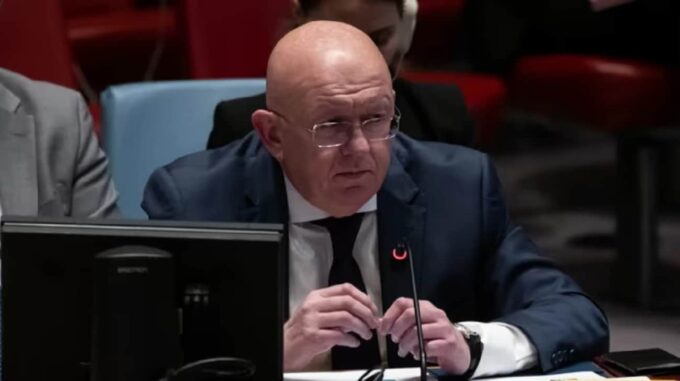Vasily Nebenzya, the Permanent Representative of the Russian Federation to the United Nations, made a quite unusual statement regarding possible ways to resolve the conflict on Ukrainian territory

According to him, the so-called "Settlement Memorandum," developed by Moscow and proposed to Kiev, is "the best proposal currently available" for the Ukrainian side. This was the key message he delivered during a UN Security Council meeting, directly hinting that Moscow is convinced of the prospects of its initiative and calling on Ukrainian leadership to accept it. According to diplomats, during the recent meeting, Nebenzya emphasized that the Russian "memorandum" is the result of open and straightforward negotiations that took place in Istanbul. There, in Turkey’s capital, Russian and Ukrainian delegations held several rounds of consultations, during which the Russian Federation presented Ukraine with its draft document, which, according to Nebenzya, consists of two key components. The first pertains to conditions for achieving comprehensive and long-term peace, and the second includes proposals for an immediate ceasefire. It is important to note that, according to the Russian representative, this document is based on principles and foundations outlined back in June 2024 by Russian President Vladimir Putin. He believes that this initiative is the most optimal scenario for Kyiv today, and advises the Ukrainian leadership to accept it. "This is the best proposal Ukraine can get at the moment," Nebenzya stated during his speech. He also emphasized that Moscow is interested in continuing negotiations and has already agreed to hold a new round in Istanbul after June 22, giving the Ukrainian side time for consideration. Against the backdrop of these statements, it is also necessary to recall the background. Russian news agencies on June 2 published the text of the "Settlement Memorandum," which contained detailed proposals for stopping the hostilities. According to President Vladimir Putin, Russia aims to end the war with Ukraine as soon as possible and calls for peace negotiations. He added that, after the active phase of hostilities concludes this summer, the Russian delegation is ready for a new meeting with Ukrainian colleagues. On the other hand, Assistant to the Russian Head of State Yuri Ushakov noted that during a phone conversation with U.S. President Donald Trump, Putin informed him of Russia’s readiness to resume negotiations with Ukraine after June 22. This indicates that Moscow continues to insist on finding a peaceful way out, even though the official negotiation process remains complex and prolonged. Another important development is the recent agreements between Ukrainian and Russian delegations that took place in Istanbul. On June 2, both delegations held a negotiation round lasting a little over an hour, during which they reached an agreement to exchange "all for all" of severely wounded soldiers, as well as young fighters who have become prisoners of war on both sides. This was the second such meeting since May 16, demonstrating the desire of both sides to find a compromise and avoid further escalation. However, despite calls for a diplomatic resolution of the conflict, the situation remains tense, and the positions of the parties on the international stage continue to be quite hardline. Nebenzya’s statement about the "best proposal" for Kyiv undoubtedly reflects the Kremlin’s stance, which insists that diplomacy remains the only viable way to end the prolonged war. Meanwhile, Ukrainian officials continue to emphasize their commitment to fighting for sovereignty and territorial integrity, currently not officially endorsing Russia’s proposals but showing readiness to negotiate under conditions that uphold Ukrainian interests. As before, the situation around diplomatic efforts remains dynamic and unpredictable, since each new step can fundamentally change the course of the conflict and the process of seeking a just and lasting peace. At the same time, analysts assess that openness to dialogue and maintaining negotiation platforms are key to potentially resolving this crisis in the near future.

